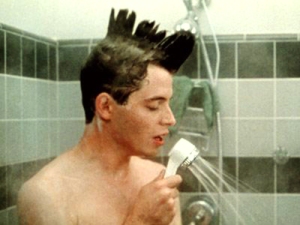If I were to ask you to define YOUR business, what’s the first thing that comes to mind? I’m sure that many of you would immediately think about your craft and, as artists, it’s probably a natural instinct to go there. So, your craft is your business, right? Well…not exactly.
See, as an artist, you obviously couldn’t have a business without your craft — your business exists because of it. And, making sure that your craft is in top form is definitely imperative to running a successful business. But it can be too easy to get so wrapped up in your craft that you forget about the business side of your career all together!
I’m sure you know what I’m talking about, especially if you find yourself spending all of your time working on your craft in classes and workshops, but deep down you’re feeling frustrated because your career is not where you want it to be. I like to call this “being a Class-o-holic.” Don’t get me wrong — I’m not knocking taking classes at all. Staying in strong craft shape is really important. But you’re in dangerous territory when taking classes is no longer in support of, and is instead at the expense of, getting out there, creating opportunities, and actually growing your business. Know what I mean?
It might be helpful for you to think of it this way: your craft + your business = your career. In fact, our tagline at Capes Coaching is “Talent is only half the equation,” because we believe that you can have all the talent in the world but no career if you don’t have the knowledge and the tools to run your business effectively.
So, how can you be sure that the classes you’re taking are ultimately supporting your career and not just giving you an excuse to stay in the classroom? Try setting an intention. In case you’re not familiar with this practice, it means clarifying what you really want to get out of something as you are about to begin it. This is particularly helpful when it comes to classes, because it’s easy to get to the end of one and somehow feel disappointed or unfulfilled. But, if you don’t articulate what it is that you want out of an experience, then you only have yourself to blame. When I teach my Path Class, I start it off by having everyone set their intentions beforehand, and then we check in with them at the end — it’s a ritual that my students have embraced and incorporated into their lives outside of Path Class.
Next time you start a new class, set your intention like this: think of one word, phrase, or idea that captures how you want to feel at the end of it. What are your standards for the class? How will you know if it was worth your full investment of time, energy, and money? Some examples of a powerful intention are: I want to feel more confident with my monologue auditioning, or I want to feel like I know the ins and outs of television writing, or I want to feel like I could hold my own on an improv team. Get the idea? In the end, you’ll have a a sense of clarity to guide you through the class, and a means of measuring your experience.

